Honorary Kiwi M. Darusha Wehm (she’s actually Canadian, but so am I, so we’re all cool here. All cool. Eh.) tagged me into this little Writing Process Blog Hop, a couple of weeks ago now, and as I’m working through my insane list of Things That Must Be Done, it has jumped to the top. Cos it can hop, see. See?
Anyway.
Darusha is a Canadian writer, global sailor, and her SF novel Children of Arkadia is soon to be published by Bundoran Press. She currently lives on her boat in Wellington Harbour, and is great fun to sit down and have a beer with. You should try it sometime.
So the way this blog hop works is that tagged authors answer four questions about their writing process, and then tag one or more authors themselves. So here we go.
1) What are you working on?
At the moment I have a couple of short stories written which I’m editing with a view to submitting when they’re ready, one being dieselpunk and the other being dark fantasy. I’m also in the midst of an editing pass over a cyberpunk novella before I hand it over to my collaborative writing band, Cerberus, to rework and bring to a whole new level of wierdness and awesome (we don’t have a website yet, but you can visit our Tumblr, if you like). I’m also deeply invested in a collaborative horror/crime novel with Baby Teeth co-editor Lee Murray, and I’d love to tell you more about that, but then I’d have to, I dunno, kill you or something. And that sounds like work that I just don’t have time for, so don’t make me, awright? As well as all that, I have two other novels in progress – a dark fantasy/comic work, and a gothic horror apocalyptopunk story. Beats having nothing to write, right?
2) How does your work differ from others of its genre?
I try to bring a very local voice to my writing. Over the past two years, I’ve had three Kiwi Steampunk stories published, with a fourth recently accepted. All of these stories have appeared in international publications, and I like to think that I have an opportunity here, as a Kiwi writer, to bring more of New Zealand to a wider audience, where our country is so often underrepresented.
I also identify as being of Maori descent, and while this has not impacted heavily on my published work to date, I have found myself wanting more and more to write stories which will delve into this. One thing I took away from Continuum X in June was the responsibility of those of us who can write, who have a voice, who might dare to think they have a platform, to respect the underrepresented and to tell those stories which belong to us, and which are not being told elsewhere. There is a weight to this, which I have been feeling as I tackled my most recent story, which is an alternate history dieselpunk story centred around the Maori Battalion serving during the First World War. I just hope that my words will validate the conviction I’ve been feeling of late to do what I can to dutifully and honourably be a voice for not only New Zealand, but also for my iwi, my hapu and my whanau (tribe, extended family and immediate family).
3) Why do you write what you do?
I started out writing lengthy fantasy novels because that’s the sort of thing I always enjoyed reading, though I often worried that I was simply imitating rather than genuinely creating. Nonetheless, it was all part of surmounting the mythological 1 million words you apparently have to write before you can say you’re a writer, so with that behind me, I put aside all pretense to being a novelist for a while and moved onto writing short fiction instead. This was also driven by the fact that about that time we had a baby in the house, and sleep deficits rendered concentration on longer projects impossible, while short stories were far more manageable. That proved to be a worthwhile diversion, as I’ve now sold a dozen stories, garnered several award nominations and a couple of wins, and brought in a little bit of money doing so. Currently I try to balance both forms, as I’d love to have some full-length novels floating around out there in the world as well.
Everything I write falls under the umbrella of Speculative Fiction, with a tendency towards the dark. The big issues that affect us as a species lead me to writing SF with a view to exploring where humanity as a race is destined – for better or worse. Questions of where we draw the line between real and unreal, possible and impossible feed my penchant for fantasy. The possibility that beneath this veneer of civilisation we’re never more than a few meals away from our savage, animal sides and that, for some, not even this much is required, informs my horror stories. By looking past the faces the world shows us and wondering what’s there beneath the surface, we might see something truly terrifying.
Because fiction is about more than story and setting and character and craft. It’s also about asking questions. The “why” of fiction is why I write. I might not give you the answers – in fact, to do so would be contrary to the “why” of it all. But asking questions, being curious, is what makes life interesting. And, of course, you might need to find that question yourself, and what you find might not be what I thought I was asking. But that’s the fun of it.
Fiction is examination, a reflection of who we are, what we see and don’t want to see. I write to get a glimpse of what might be. Somewhere in there, you’ll find equal amounts of hope and terror. Just doing my bit to keep the universe level.
4) How does your writing process work?
That’s the great unanswerable question, isn’t it? But I can give it a go. You see, much of the time, my writing isn’t so much a process as it is the meeting of habit and opportunity. Basically, i’m in the habit of sitting down and writing whenever I have a spare moment, which isn’t that often between keeping up a full-on technical management day job and being a Dad to two awesome and intense kids. I write early in the morning and after the kids’ bedtime in the evening, and sometimes words happen. Sometimes less so. Sometimes more.
In general, I’m more pantser than planner. I tend to start off with no plan, just with words rolling out without anything thought through, and as I get into it, characters and places and stories take shape. Most of this I do longhand, scribbling in A5 notebooks in an illegible scrawl I like to think of as a secret alphabet that only I can read but which I know is actually just an illegible scawl that only I can read. Somewhere in that process, one of three things will happen. Either I realise that the story is going nowhere and it gets abandoned. Or I grasp that there is a story there, beneath the words, but I’m not going to find it by carrying on down this path, at which point I start a second draft straight onto the computer. And sometimes, I make it all the way to the end. And wonder how I got there. Oh, and sometimes I start writing straight onto the computer, usually when I have a slightly more well-formed idea in mind. Because I’m nothing if not inconsistent.
Once I make it onto writing on a keyboard -whether as a first port of call, or after working on a longhand draft- a couple of things happen. First, I can actually research details as I go. This sucks up time, but it’s worth it for all the reasons research is good. Adding authenticity to the story, educating myself, all of that. I also find it harder to avoid dropping in to Facebook and losing time socialising, but that’s the price we pay, don’t we? But with all of these things out of the way, I get words cranking. Usually, this is a matter of starting with the longform text and copying it over, but inevitably things evolve and shift and polymorph, until by the time I get to the end, the story has taken on a whole new form I wasn’t expecting. Basically, I open up the gates to the chaos beyond, and all manner of twisted, self-determining protoplasm pushes its way through onto the page.
When I get as far as editing, that’s when I have to reassert the human voice of reason, whip my characters back into line, and try to polish up something that people would want to read. Sometimes I do this right away, sometimes after a break, then I get my dearly-loved beta readers to tell me that I’ve smeared fistfuls of meaningless sludge across their computer screens, I go back and revise and rethink and rewrite and scrap entire worlds in my hunt for a good story, until I have something that resonates clean and clear and beautifully broken. I don’t know how I do that. I just lose myself down there in the words and the worlds, and hope every time that I’ll find my way back out. So far, so good.
So, what’s the point of this, if you’re a writer looking for a bit of insight into how some unlikely guy with a funny name has managed to sell a bunch of stories, snag a couple of awards, and collect a following of people who might like to read more of what I squeeze out from the grey matter, or that strange space beyond? Well, there’s only one rule about writing that you need to know, and be ready to read all the rest, and throw them out if they don’t suit you, but you can’t ignore this one: Write. Writers write. Unless you’re doing that, the rest of the rules are redundant. That’s the one rule I’ve always stuck to. I write, every day if I possibly can. Sometimes it’s only a couple hundred words, or a page, or even a blog post about how I write, but if a day goes by that I break that rule, I know it’s a day I’ll never get back. So I try to keep it, every day. It doesn’t matter what. And with time, that habit of always working on something, however small a bite of the pie it might be, has meant that nowadays every time I’m writing, I know that I’m either creating something new that will one day be something worth showing to people to read, or I’m working on my craft with words that no-one will ever see, or I’m racing towards the end of another unexpected journey that my characters have taken me on, a story that must be completed so that they can rest.
There are a lot of voices in a writer’s head. The most important thing to remember is which ones to listen to. Tune out the ones that whisper to you about self-doubt and self-loathing, and listen to the ones that come from other places, with stories that must be told. Because those are the voices that we have a responsibility to listen to.
Right, now I’ve gone on about that for far too long, and it’s time to hand off the reins.
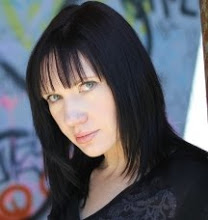 Tag!
Tag!
For my next trick, I’d like to welcome Debbie Cowens to the Great Writing Process Blog Hop. Debbie is the winner of both the Sir Julius Vogel Award, and the Australian Shadows Award, and is co-author of Mansfield with Monsters, from Steam Press, as well as the story collection Steam Pressed Shorts and the Lovecraft-Mansfield mashup novella, At the Bay of Cthulu.
Over to you, Debbie!
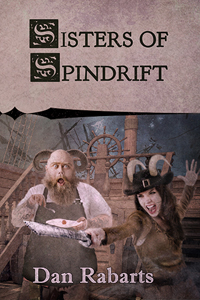
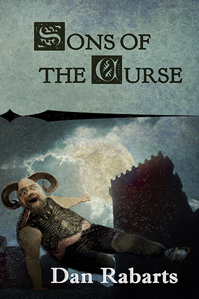
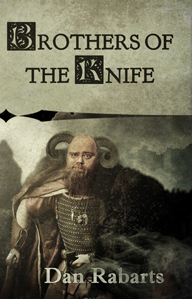
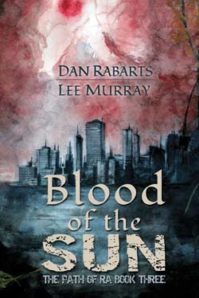
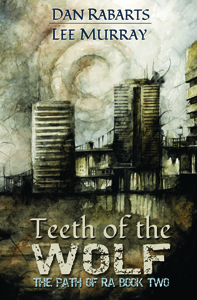
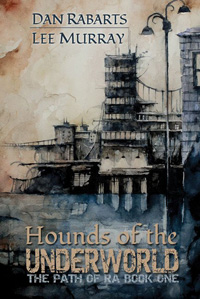
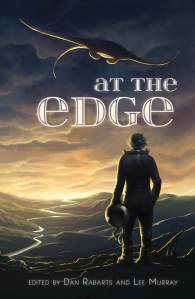
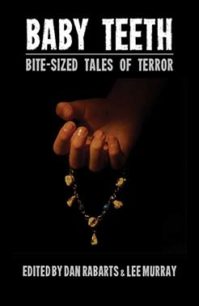
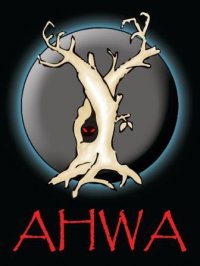

2 Responses to The Great ‘Writing Process’ Blog Hop